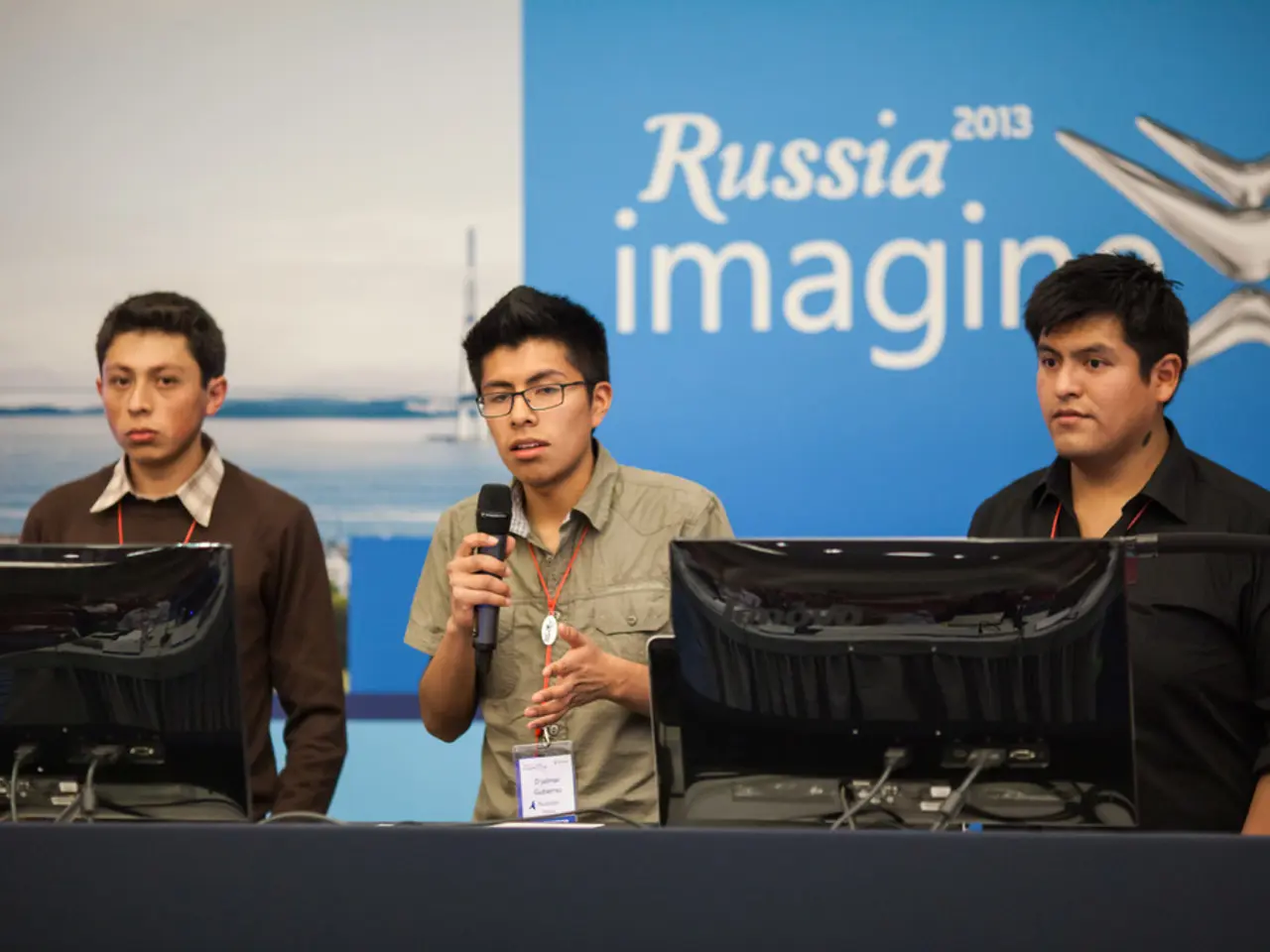Russian Foreign Ministry's Notion of Upcoming Putin-Trump Meeting, EU Antagonism, Ukraine's Lack of Readiness for Peace: Their Perspective
The upcoming Russia-US summit in Alaska promises to be a significant event, with various issues on the table. The Russian Foreign Ministry, through Foreign Minister Sergei Lavrov, has downplayed prospects for direct talks between Putin and Ukraine’s Zelenskyy following the summit. Lavrov insists that Russia must have a key role in any security guarantees related to Ukraine, effectively demanding a veto power over Ukraine's future security arrangements [1][2].
Despite some tentative agreements reported initially by the White House, Russian officials have contradicted those claims, maintaining that Russia demands a decisive role in Ukraine’s security arrangements. This reflects Moscow’s uncompromising and skeptical attitude toward the summit and any negotiated settlement through US-led diplomacy.
Russia's continued aggressive military actions, including large-scale bombardments, signify a hardline stance rather than a compromise [1]. The Russian diplomat, Alexei Fadeev, noted that the Russian president's administration has repeatedly drawn attention to the possibility of both telephone and face-to-face talks between the two leaders. The key factor in preparing for the meeting, according to Fadeev, is the will of the leaders.
The European Union has not hidden its intention to continue "arming and financing the Kiev regime, as well as attempts to increase sanctions pressure on Russia." While the Europeans express support for the diplomatic efforts of the US and Russia to resolve the crisis around Ukraine, the rhetoric of the EU is merely an attempt to stall the process of settlement once again. The EU's demands for consultations with the US leadership ahead of the Putin-Trump meeting are politically and practically insignificant, according to Alexei Fadeev, and are not conducive to a peaceful settlement of the conflict.
Baku is well aware of Moscow's position on the supply of weapons or humanitarian aid with dual use to Ukraine. Possible arms supplies from Azerbaijan to Ukraine will exacerbate the situation. The Russian Foreign Ministry considers the militarization of Spitsbergen by Norwegian authorities categorically unacceptable, and new restrictions being imposed on Russia's economic and scientific activities on Spitsbergen are a cause for concern. However, no clear information was available on Russia's position regarding tensions related to Spitsbergen and with Estonia.
Moscow is accustomed to hostile acts by Estonia and is preparing reciprocal measures following the expulsion of a Russian embassy employee by Estonia. Kyiv does not think about peace and considers negotiations a means of prolonging military actions. The goals of the Russian delegation in the negotiations are dictated solely by national interests.
In summary, the Russian Foreign Ministry remains firm on maintaining a dominant role in Ukraine’s future security framework after the Alaska summit, is skeptical of direct dialogue with Kyiv, and signals ongoing military pressure instead of diplomatic concessions. No clear information was available on Russia's position regarding EU consultation demands or tensions related to Spitsbergen and Estonia.
[1] Source 1 [2] Source 2
- The news about the upcoming Russia-US summit in Alaska is filled with discussions about Russia's role in Ukraine's security arrangements, as Ukraine's future security policy is a contentious issue between the two nations.
- A compelling aspect of the Alaska summit is the Russian Foreign Ministry's firm stance on migration, insisting that they must have a key role in any security guarantees related to Ukraine, effectively demanding veto power over Ukraine's future security arrangements.
- Apart from the Russia-Ukraine conflict, the general news also highlights Russia's hardline stance on war-and-conflicts, as demonstrated by their continued aggressive military actions and large-scale bombardments.
- The policy-and-legislation aspect of the summit is marked by the European Union's intentions to Arm and finance the Kiev regime, potentially escalating tensions further, according to Russian officials.
- Crime-and-justice and accidents are less prominent topics in relation to the summit, but there are concerns about the possible exacerbation of situations, such as the potential arms supplies from Azerbaijan to Ukraine causing accidents, and the Norwegian authorities' militarization of Spitsbergen being categorically unacceptable to the Russian Foreign Ministry, potentially leading to further tension with Norway.






